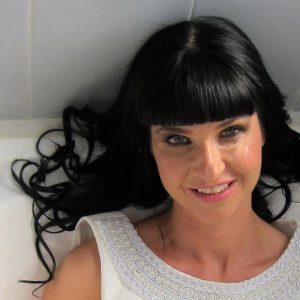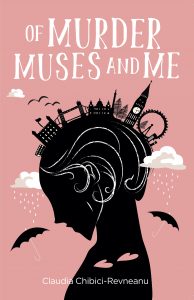What I Learned From Writing About Women Writers
 I have an obsession: creativity, and above all the creations of women. I’ve spent uncountable hours reading women’s writing, speaking to women who create, conducting research on their artistic process. Don’t get me wrong. I love men’s creativity too. What’s more – I’m aware that distinctions between “male” and “female” creativity can be dangerous. So when I separate men and women – meaning those who self-identity as such – I do so out of an awareness that the artistic creations of the latter have – to varying degrees, depending on particular contexts – often been treated differently.
I have an obsession: creativity, and above all the creations of women. I’ve spent uncountable hours reading women’s writing, speaking to women who create, conducting research on their artistic process. Don’t get me wrong. I love men’s creativity too. What’s more – I’m aware that distinctions between “male” and “female” creativity can be dangerous. So when I separate men and women – meaning those who self-identity as such – I do so out of an awareness that the artistic creations of the latter have – to varying degrees, depending on particular contexts – often been treated differently.
Due to this obsession, I decided to write a book on and for women writers. It’s still a work in process. But I’ve already conducted many interviews with beginning, developing and acclaimed published authors from a diverse mix of ethnic and national backgrounds – including some of my favourite novelists! I’d like to share some inspiring insights I gained. Due to limited space, I’ll only include published writers for now.
I was interested whether the authors interviewed had experienced gender bias. Many – like the Italian-Canadian novelist Rosanna Micelotta-Battigelli – had not. Instead, in her opinion, writing is “an individual journey for both men and women. I don’t think it’s harder for one gender or the other”. For others, their experience of prejudice was strong. The Mexican novelist Daniela Tarazona admitted that her reviews often revealed a gender bias, “sometimes fortunately, unfortunately in others”. Also, “some of my texts have been read from a macho perspective and that influenced their reception.” The British Ghanaian novelist Frances Mensah Williams argued that she frequently felt pigeonholed as a “black female writer” and limited by the expectations this placed on her work. “Black”, she said, “is not a genre.”
Beyond issues of discrimination, there were rich discussions on creative matters from the conception of ideas to fear of rejection. Starting with inspiration, the Indian writer Indu Balachandran described her creative process as a “smile in the mind – when random pieces of knowledge, images, sounds, even some terrible puns and jokes – collide in my head.” The unconscious often played a crucial part. The US indie novelist Taralynn Moore spoke about how much she loved “the serendipitous feeling of the plot falling together”. The Argentinian Mexican writer Sandra Lorenzano emphasised the fluidity of her creative process and how she tended to rely on unconscious processes, although “in some novels more than in others”. When she was writing one of her works, the voice of a character spoke to her every morning and she just “sat down and wrote those monologues.”
But not all goes smoothly in the interviewed authors’ creative lives. One common difficulty was not having enough time. In the words of Micelotta-Battigelli: “one of my greatest obstacles was lack of time…along with my job, I had other responsibilities: my family…I had to try to balance everything”. Lorenzano mentioned similar struggles, although she thinks that ultimately “the obstacle is always oneself”. For her, lack of time may be a sign that one doesn’t give enough importance to one’s writing.
This leads to another challenge for many – their critical voice. The US novelist Lily King shared that “I try with all my might to banish it every day. Sometimes I have to fully imagine shutting the door and leaving it out in the hallway. When I’m writing a first draft I only want the creator in the room. The critic is useless.” The Canadian author Amanda Truscott also explained how “I now react to that voice in a way similar to how I might react to a particularly obnoxious chihuahua: I yell at it to shut up, and if it doesn’t, I tie it up somewhere for a while.” Indeed, according to Moore, “persistence is the only way to overcome” self-doubt.
The authors’ feelings towards rejection and negative reviews weren’t altogether dissimilar. Mensah Williams confessed that: “As for rejections per se, I hate them….It’s like someone telling you your baby is ugly, or your food tastes disgusting…it always reinforces that awful voice that is in the background anyway.” Still, Mensah Williams – as well as the others – showed notable resilience: “It’s tough. But once I get over the sadness (and the anger), I think I have been humble enough” to address the criticism received.
I was also struck by King’s comment about reviews: “I find publication and the ensuing reviews a very disturbing and disruptive shift. You spend a long, intimate time with a novel, and suddenly it becomes public and people are judging it… It is wonderful to get a glowing review, but it is also a judgement. You don’t write a novel to be judged….You write it to be experienced by a reader, to be lived through. The ideal review for me would be someone telling me how they felt as they were reading, what it made them think of, remember.” I couldn’t agree more.
Finally, what also stood out was the writers’ (sometimes complex) love for their work. Tarazona commented that what she liked most about the writer’s life was “the actual writing of the stories. There is nothing in life which gives me such an intense satisfaction.” For Balachandran: “Writing is my workout, my yoga; sometimes it is also my make-up! If I feel I wrote something satisfying in the course of a day, I feel my complexion improves at once.”
Does one have to be confident to write and share what one longs to say? Truscott disagrees: “One doesn’t need to be confident; one needs only to have the courage to act in the absence of confidence.”
I’ll take that to heart for this writing project of mine.
—
Facebook: https://www.facebook.com/claudiachibici/
Twitter: @ChibiciClaudia
—
Claudia Chibici-Revneanu is a geographically confused Austrian, who lived for a long time in the UK and works as a lecturer at the National Autonomous University of Mexico (UNAM) in León, Mexico. She holds a PhD in Cultural Policy Studies from the University of Warwick which focused on the creative process of women writers. In 2017 she won the medal Sor Juana Inés de la Cruz for women at the UNAM, for combining her academic work which her passion for promoting literary and musical composition for women and other “groups” usually excluded from the status quo. She regularly holds creative and expressive writing workshops and, as a mezzo-soprano, gives concert-conferences about women composers. Of Murder, Muses and Me, published by Jacaranda in 2017 and released in Spanish by Universo de Libros in 2019 is her first novel.
 When bestselling author Mark Drubenheimer is found dead in his studio, Rosalind Waterloo’s world collapses.
When bestselling author Mark Drubenheimer is found dead in his studio, Rosalind Waterloo’s world collapses.
The official story is that the author committed suicide, but for his devoted fan Rosalind, there is only one explanation: Drubenheimer was murdered, and Rosalind is the only person who can expose the killer. Rosalind takes her investigation to London and to the heart of the publishing industry where she encounters an intriguing cast of characters; an eccentric editor, a modest muse, a wounded widow and a mesmerising mystery man.
With her sanity now in question, Rosalind is even more determined to uncover the truth behind Drubenheimer’s death regardless of the dramatic consequences. Of Murder, Muses and Me is a sharp and witty debut by a promising talent.
Category: On Writing






























